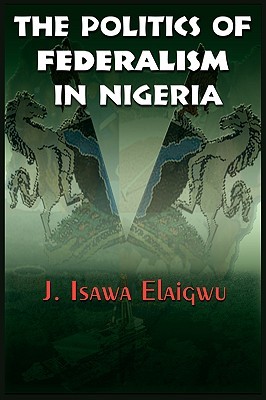
- We will send in 10–14 business days.
- Author: J Isawa Elaigwu
- Publisher: Adonis & Abbey Publishers
- ISBN-10: 1905068433
- ISBN-13: 9781905068432
- Format: 15.2 x 22.9 x 2.2 cm, kieti viršeliai
- Language: English
- SAVE -10% with code: EXTRA
Reviews
Description
Nigerians embraced federalism as a way of managing the conflicts and suspicions among the various constituent nationalities that make up the Nigerian state. These fears and suspicions had led to the emergence of aggressive political and economic competitions along ethno-regional lines. Beginning from 1954, the unitary colonial state saw itself being gradually federalized as it had to contend with powerful ethno-regional pressures in the run-up to independence in 1960. Following the military coup of 1966, which ushered in a prolonged period of military rule, the various military regimes created a very centralized federal system while they ruled. By 1999 however, Nigerians had become disenchanted with the way the federal system was operated in the country, with echoes of the strident calls for a national conference to re-assess the system and the way it was operated reverberating throughout the entire length and breadth of the country. In The Politics of Federalism in Nigeria, Professor Jonah Elaigwu, a leading authority on federalism, discusses the processes through which Nigeria came to adopt a federal system of government as well as the manner in which the system has been operated in the country. He seeks answers to a number of critical questions: How has the system of federalism been really operated in the country? What have been the main challenges to the effective operation of federalism in Nigeria? And what is the future of federalism in the country?
EXTRA 10 % discount with code: EXTRA
The promotion ends in 21d.12:39:27
The discount code is valid when purchasing from 10 €. Discounts do not stack.
- Author: J Isawa Elaigwu
- Publisher: Adonis & Abbey Publishers
- ISBN-10: 1905068433
- ISBN-13: 9781905068432
- Format: 15.2 x 22.9 x 2.2 cm, kieti viršeliai
- Language: English English
Nigerians embraced federalism as a way of managing the conflicts and suspicions among the various constituent nationalities that make up the Nigerian state. These fears and suspicions had led to the emergence of aggressive political and economic competitions along ethno-regional lines. Beginning from 1954, the unitary colonial state saw itself being gradually federalized as it had to contend with powerful ethno-regional pressures in the run-up to independence in 1960. Following the military coup of 1966, which ushered in a prolonged period of military rule, the various military regimes created a very centralized federal system while they ruled. By 1999 however, Nigerians had become disenchanted with the way the federal system was operated in the country, with echoes of the strident calls for a national conference to re-assess the system and the way it was operated reverberating throughout the entire length and breadth of the country. In The Politics of Federalism in Nigeria, Professor Jonah Elaigwu, a leading authority on federalism, discusses the processes through which Nigeria came to adopt a federal system of government as well as the manner in which the system has been operated in the country. He seeks answers to a number of critical questions: How has the system of federalism been really operated in the country? What have been the main challenges to the effective operation of federalism in Nigeria? And what is the future of federalism in the country?


Reviews